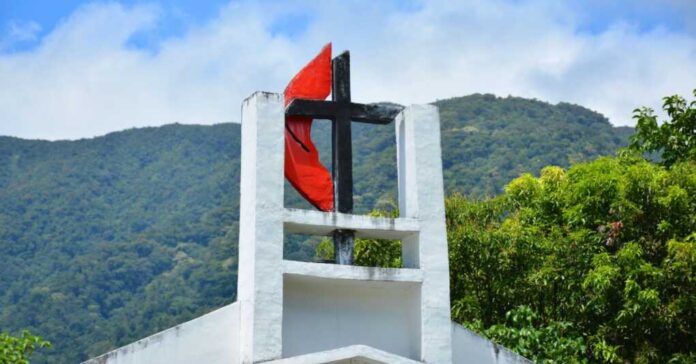
Last week marked a significant shift in the landscape of the United Methodist Church (UMC) as it saw the departure of over 1 million members. This exodus was led by the United Methodist Church of Ivory Coast (Eglise Méthodiste Unie Côte d’Ivoire, or EMUCI), which officially severed ties with the UMC on May 28. The decision came shortly after the UMC’s controversial vote to permit LGBT-practicing clergy and to endorse same-sex marriages.
The EMUCI articulated their decision as one rooted in doctrinal fidelity, stating it was made “for reasons of conscience, before God and His word, the supreme authority in matters of faith and life.” They criticized the UMC’s new direction, asserting that it “deviates from the Holy Scriptures” and accused the church of “sacrificing its honor and integrity to honor the LGBTQ community.”
Bishop Benjamin Boni of the EMUCI further criticized the UMC’s shift, remarking that the church “is now based on socio-cultural and contextual values which have consumed its doctrinal and disciplinary integrity.”
This schism is not just a numerical loss for the UMC but also a geographical and spiritual one, as the EMUCI represents one of the denomination’s largest conferences. Established as a provisional member in 2004 and fully admitted in 2008, the EMUCI has shown robust growth, boasting 900 churches and 100 preaching points, and experiencing an annual growth rate of 7-8%. The demographic of the church mirrors that of the Ivory Coast, with a majority of members being under 35 and women.
The church not only focuses on spiritual missions but also runs schools, a hospital, and engages in extensive community development.
The departure of the EMUCI is part of a broader trend of traditionalist congregations leaving the UMC over its liberal theological shifts. In the United States, thousands of congregations have already disaffiliated, with many joining the Global Methodist Church or choosing to remain independent.
Similarly, the Korean Methodist Church, which includes approximately 1.5 million members, is also contemplating departure. A coalition of conservative Korean Methodists expressed their stance clearly:
“Homosexuality cannot be accepted until the Lord returns. This is not an emotional issue but a matter of unchangeable truth. Homosexuality is clearly a sin.”
These developments underscore a growing divide within the global Methodist community, reflecting broader tensions between traditional doctrines and contemporary societal values.















